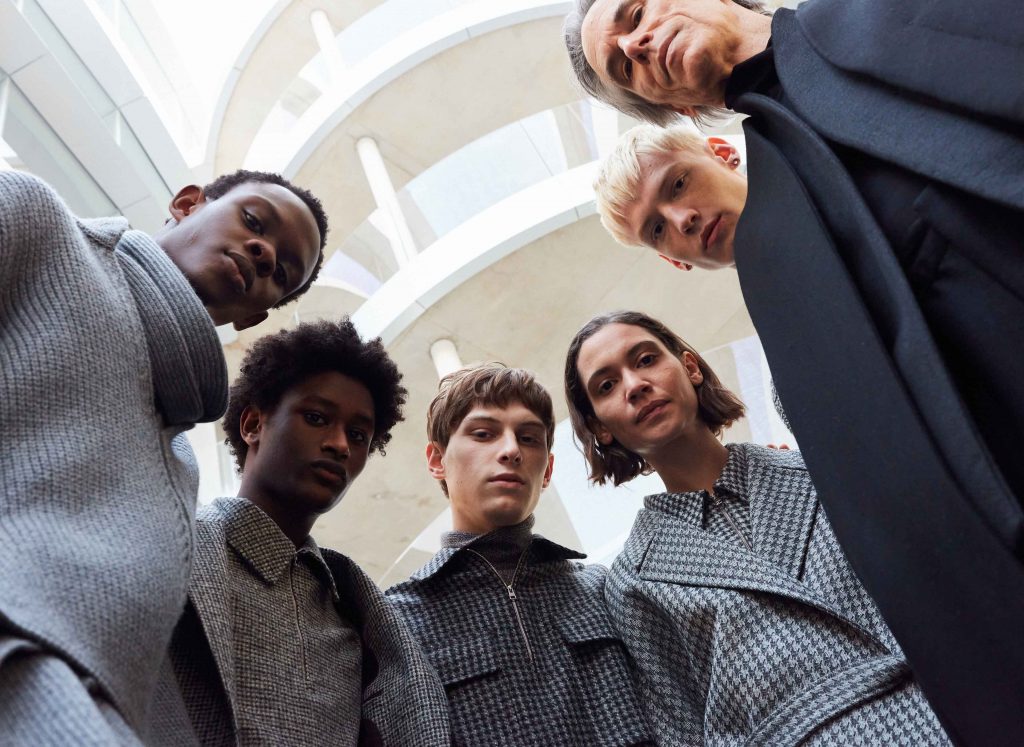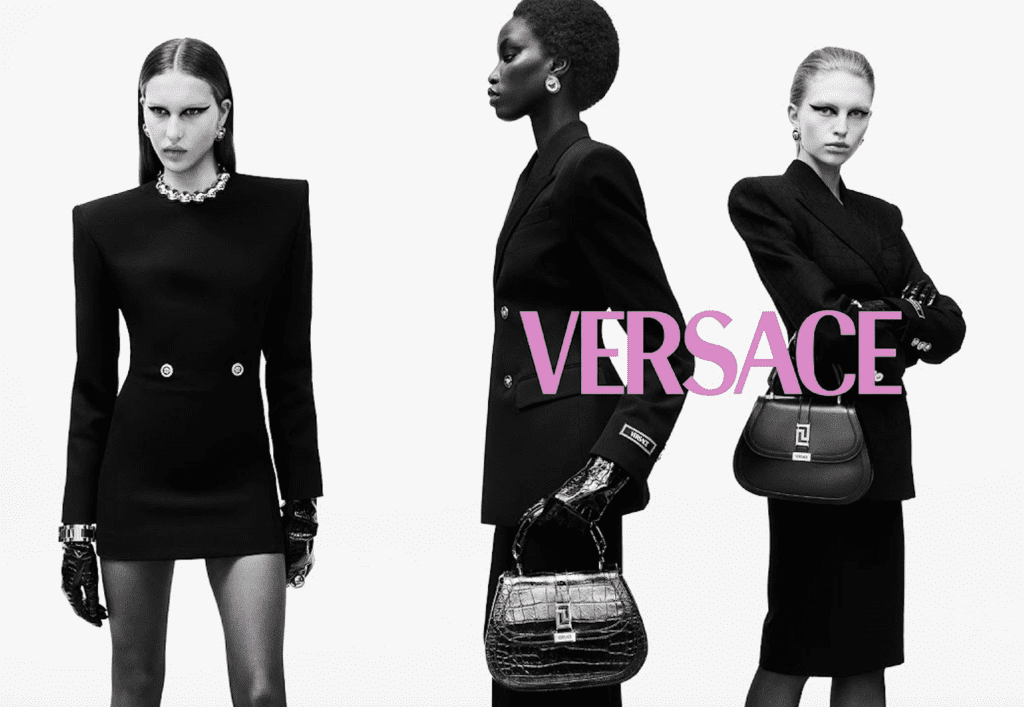Prada revealed this week that it has partnered with fellow Italian fashion company Ermenegildo Zegna Group to acquire a controlling stake in Italian cashmere producer Filati Biagioli Modesto in furtherance of a quest to “secure a domestic supply chain and luxury-goods manufacturing expertise,” Bloomberg reported. The two big-name fashion entities will each take a 40 percent stake in the Montale-based supplier, which is known for its Italian cashmere and “noble yarns,” while the Biagioli family will hold on to 15 percent of the company, and newly-appointed CEO Renato Cotto – who recently served as a director at LVMH’s Loro Piana – will assume a 5 percent holding.
The acquisition is the latest deal in a trend that has seen some luxury goods brands bring an array of suppliers and services under their own roofs – or at least amass sizable stakes in the companies – in an effort to exert increased control over the manufacturing of their offerings. Over the past decade, in particular, fashion’s most esteemed luxury names have been busy buying up different aspects of their supply chains in part to ensure closer ties to a supply of raw materials.
Chanel made headlines in 2016, for example, when it purchased four of its silk suppliers. Around the same time, it also took a majority stake in the family-run Richard Tannery, a provider of lambskins for its small leather goods. Still yet, the Coco Chanel-founded company also bought a minority stake in 130-year-old tulle and lace supplier Sophie Hallette near Calais, France’s lace capital, in order to secure the supply of its brand, which generates more than $10 billion in sales each year. Louis Vuitton, Prada, Burberry, and Hermès, the latter of which famously started breeding its own crocodiles on its own farms, mainly in Australia, in 2009, among other similarly-situated brands, have snapped up key suppliers in a race to lockdown their valuable materials sources.
Against this background, Bloomberg notes that cash-flush luxury brands’ more recent supplier acquisitions have an additional driving force: they reflect a growing desire to “improve the traceability and transparency of the materials used in their products” particularly “amid growing awareness among consumers” – and in some cases, regulators and lawmakers – “on matters ranging from animal welfare to workers’ rights” and modern slavery.
The Prada and Zegna deal falls neatly in line with consolidation efforts in the upper echelon of the fashion and luxury goods industries that have accelerated in the wake of the COVID-19 pandemic, which put many brands’ global supply chains in disarray. As Isabelle Chaboud, the Program Director for the MSc in Fashion Design & Luxury Management at Grenoble Ecole de Management, asserted in connection with trends that will likely emerge from the pandemic and shape the future of the fashion industry, “Financially solid players” in the industry, such as LVMH, Kering and/or Chanel, “will no doubt have the option of buying out” other companies, including suppliers, many of which have suffered significantly as a result of the pandemic.
Looking Beyond Suppliers
The overarching rise of supply-side acquisitions is not limited to textile manufacturers. Luxury goods companies have been looking to take greater control over the branding, marketing, and sale of their products, and all the while, enjoy full and unencumbered access to valuable information, such as client data. This has prompted industry’s key players to increasingly build up their own technology teams and bring previously-outsourced tasks in-house.
Kering, for example, opted to bring its digital operations in-house in 2018, after previously partnering with Yoox in 2012 to “help power” the Paris-based conglomerate’s early “online retail platforms.” The Gucci, Balenciaga, and Bottega Veneta-owned revealed that the move to bring its online operations under its own umbrella was the “natural” next step for its e-commerce properties. (In something of a similar vein, Kering announced in the fall of 2014 that it would create an in-house eyewear division in order to tighten control over the business – and the revenues generated – and as a result, it would gradually walk back on the eyewear license arrangements entered into by its various brands, another trend that is expected to continue years later in the wake of the pandemic.)
As e-commerce capabilities continue to prove a critical touchpoint for brands looking to create new customer journeys, and as data becomes increasingly central to the customer experience, brands that can afford to do so will likely continue to build tech teams in order to handle as much as they can, thereby, limiting their reliance on third-parties.
And not to be overlooked, the same course of action will almost certainly prove true for resale endeavors, which are currently seeing most brands that are actively engaging in this space partner with existing entities in order to get their feet wet in the relatively new segment. Stella McCartney, Burberry, and Gucci, among others, have paired with The RealReal, for instance, while Alexander McQueen has partnered with Vestiaire Collective. Such tie-ups are largely the result of the fact that most luxury brands lack resale-specific experience and expertise, and thus, big-name groups find it most efficient and effective to partner with established players in the resale space. As some 60 percent of retail executives told ThredUp for its annual 2021 Resale Report, the “best approach” to getting into resale is by way of partnerships with an existing resale business. 28 percent said that they view building their own resale divisions “from scratch” as the best approach, while 8 percent cited buying an existing resale company as the way forward.
If Kering – which appears in many ways to be the leader in terms of consolidation of suppliers and service providers – is any indication, the same trend will play out in resale. After trying its hand by way of a limited-time partnership between Gucci and The RealReal, the group announced this spring that it would acquire a stake in French resale company Vestiaire. Reflecting on the deal in a research note in March, Bernstein analyst Luca Solca called Kering’ s investment, which gives it a 5 percent stake in Vestiaire, “a smart move, both financially and strategically” given that (1) “the pre-owned market is developing fast, and Vestiaire is the European champion in it,” (2) “a partnership with Vestiaire will likely provide Kering’s brands privileged access to it.”
Expect more deals to come in this vein in coming years.
And speaking of deals, the Prada announcement follows from TFL’s report that Prada potentially looking to build out its group under the watch of co-CEO Patrizio Bertelli, who is in the midst of discussions with bankers in Milan about possible deals to take over an as-of-now unnamed brand, but likely one that Prada can acquire for cheap and relaunch under its ownership umbrella.











